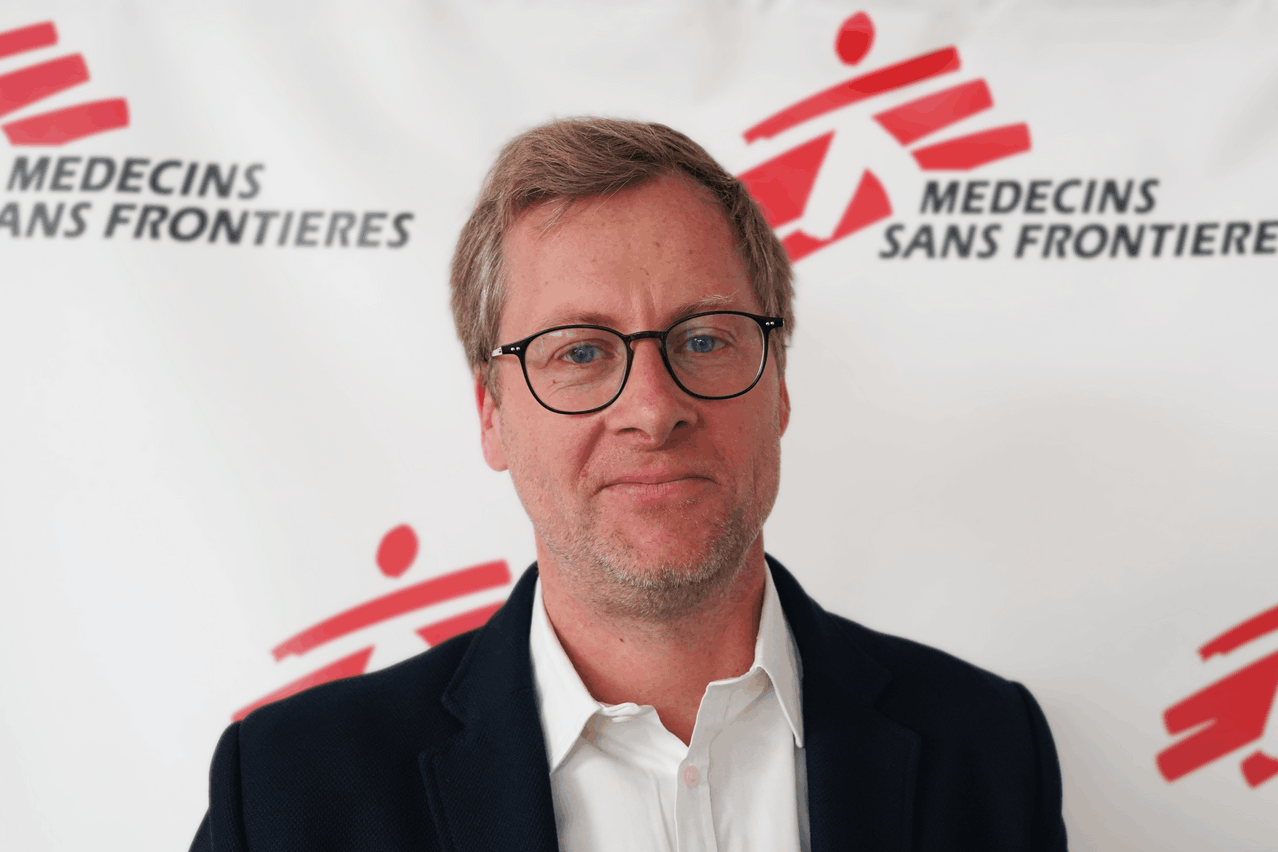As one of the 25 sections that make up the Médecins Sans Frontières (Doctors Without Borders) movement, MSF Luxembourg contributes to the humanitarian organisation’s responses to emergencies around the world--from the war in Ukraine, where MSF has trained medical practitioners in war and trauma medicine, developed projects for psychological health and operated a medicalised train to evacuate 2,600 vulnerable people, to providing mobile clinics and water sanitisation material in response to flooding in Pakistan that affected more than 33m people in 2022.
Linked to the operational centre located in Brussels, MSF Luxembourg sends approximately 10 people to different projects every year--at the moment, there is a logistics expert working in the Democratic Republic of the Congo.
Luxembourg-based research brings added value to MSF programmes
What is unique about MSF Luxembourg is the operational research team that it hosts. The Luxembourg Operational Research (LuxOR) “is really something central in the movement, and it’s very important for MSF,” said , MSF Luxembourg’s general director, who took up the position in September 2022. “Operational research is how you conduct research based on data and based on your operations to improve them.”
The team of 12--based in Luxembourg, Brussels, South Africa, Canada and Lebanon--is headed by director Amrish Baidjoe, explained Kauffmann. Team members--who are medical scientists, epidemiologists, anthropologists and sociologists--go to MSF projects and work with locally based staff to gather data and conduct research.
Operational research addresses questions such as: “Are there gaps in the quality of the medical care we provide in this project, for this population? Are the health programmes in this country sufficient for the patients’ needs? Are patient needs being met in the best manner?”
“We also want to study the roots of some humanitarian challenges we have,” continued Kauffmann. Climate change is becoming more important and is having a “direct impact on the health of the world population” while “aggravating” other crises. Research conducted on climate change found, for instance, that it has played a role in increased malaria in central Africa.
Studies on malnutrition
Another example of operational research concerns malnutrition. The MSF movement has long been involved in malnutrition projects in countries including Nigeria, Somalia, Ethiopia and Kenya. Drought and climate change have contributed to the crisis, as well as the rise in food prices caused by Russia’s war in Ukraine. In Nigeria alone, 140,000 children were treated for malnutrition in 2022.
“We have in Africa a special paste that we give, which is made out of peanuts. It’s a kind of very high calorific food that we give to children so that they can recover,” said Kauffmann. This was also used to treat malnourished children in Bangladesh, but it wasn’t working as well. Thanks to a LuxOR operational research project, it was discovered that the taste and smell of the peanut paste was preventing children from accepting the paste.
We have a capacity actually to change the world.
The LuxOR unit is really a “big value addition to the MSF movement,” Kauffmann said. It leads to practical improvements in programmes and allows MSF to better serve patients. MSF also has teams called Epicentre (based in France), Samu (in South Africa) and Bramu (in Brazil) that conduct research as well.
Training others to conduct operational research
LuxOR team members also train others to carry out operational research through courses called Sort-It (Structured Operational Research Training Initiative), explained Kauffmann. MSF staff members who work in projects around the world can participate in a set of modules that guide them through how to conduct research and prepare articles for scientific journals.
Normally, these courses are conducted in English, the language of the “scientific milieu,” but last year saw the first French-language Sort-It course carried out in western Africa, said Kauffmann, who was present in Abidjan, Côte d'Ivoire, for the final module in December 2022. One participant, for example, presented research on post-partum complications linked to access to hospitals, said Kauffmann, and how the problem could be addressed.
This year’s Sort-It course will be dedicated to climate change, noted the MSF Luxembourg director.
The importance of raising awareness
So what are MSF Luxembourg’s priorities for 2023? Besides the Sort-It course and ongoing research, “we have to stay flexible” and see where new emergencies arise, said Kauffmann. There will also be a focus on so-called “forgotten crises” such as the war in Yemen, or a cholera outbreak in Lebanon, as well as malnutrition projects in sub-Saharan Africa.
But beyond donations, it’s also crucial to share knowledge about MSF projects, said Kauffmann. “A big part of our mission, our mandate, is speaking out--what we call in French ‘témoignage,’” he added. “It’s really in the DNA of MSF.” It’s key to raise awareness about what MSF is doing and the people who are most in need.
We are all part of the “solidarity chain,” said Kauffmann. “In our own means, we have a capacity actually to change the world.”

